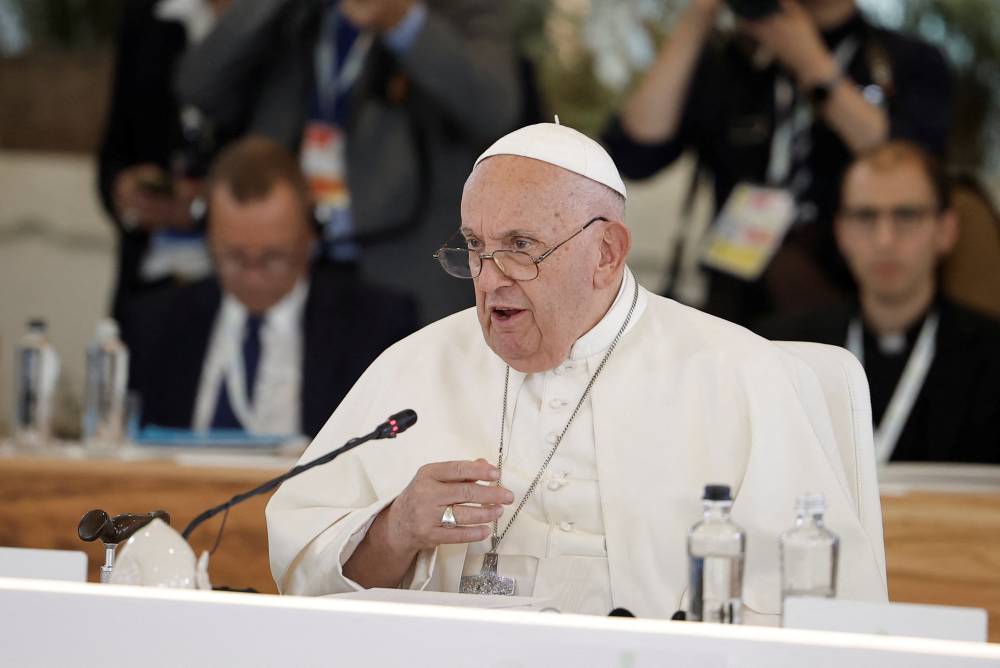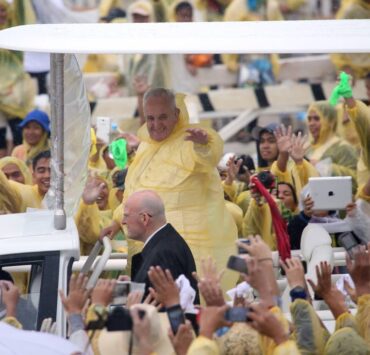‘Laudato Si’: A papacy takes on ‘throwaway culture’

It is revealing—and perhaps poetically fitting—that Pope Francis passed away just two months shy of the 10th anniversary of “Laudato Si,” his landmark 2015 encyclical that reimagines care for the environment as a social, moral and spiritual imperative.
The title itself, “Laudato Si,” or “Praise Be,” echoes the Canticle of the Sun by St. Francis of Assisi, the Pope’s namesake. That medieval hymn opens with a soaring invocation: “Most High, all-powerful, all-good Lord, all praise is Yours … Praised be You my Lord with all Your creatures …” With this spiritual framing, Pope Francis grounded ecological concern not in politics or economics but in worship and wonder—an echo of praise rather than protest.
The conceit of “Laudato Si” is not merely poetic. It strategically inserts ecological advocacy into the body of Catholic social teaching, drawing a genealogical line from Leo XIII’s “Rerum Novarum” (1891) on labor and capital, to Pius XI’s “Quadragesimo Anno” (1931), John XXIII’s “Mater et Magistra” (1961) and “Pacem in Terris” (1963), Paul VI’s “Populorum Progressio” (1967), John Paul II’s “Redemptor Hominis” (1979), and Benedict XVI’s “Caritas in Veritate” (2009).
In this continuum, “Laudato Si’” emerges not as an anomaly but as a necessary development in Catholic doctrine, expanding the Church’s moral concern to include the fate of the planet itself.
‘Ecological conversion’
Austrian Cardinal Christoph Schönborn, editor of the Catechism of the Catholic Church, rightly called “Laudato Si’” “an epochal document.” It calls for nothing less than an “ecological conversion”—a transformation of both personal habits and global systems.
Pope Francis denounces what he terms the “technocratic paradigm” and the idolatry of limitless consumption. Instead, he proposes an “integral ecology” that recognizes the sacred interconnection between humans, creation, and the divine. “We are not God,” he writes starkly. “And the earth was here before us and has been given to us.”
The document critiques what Francis calls a “throwaway culture,” one that casually disposes not only of things but also of people—especially the poor, the unborn, and the indigenous. Environmental destruction, in his view, is a moral failure rooted in human arrogance and spiritual dislocation. The response, therefore, must be spiritual as well as structural. “Laudato Si’” urges “swift and unified global action” and the adoption of sustainable lifestyles that respect both the natural world and the dignity of the poor.
Not surprisingly, the encyclical has drawn criticism. Some Catholic conservatives argue that it departs from traditional doctrine by minimizing humanity’s dominion over creation, portraying people as merely one element of the natural order rather than stewards with divine authority. Others claim that its economic critiques—particularly its suspicion of capitalism and growth—lack sufficient theological or empirical grounding and veer dangerously close to leftist rhetoric. There is concern that Francis’ call for global economic restructuring may be well-intentioned but impractical, especially for developing nations in need of industrial expansion.
Critics further argue that “Laudato Si’” presents an overly bleak view of market economies. They claim that the encyclical fails to recognize how innovation, entrepreneurship, and smart regulation have historically addressed environmental challenges.
Legacy
Indeed, in many countries, market-driven solutions have led to cleaner air, safer water, and more efficient energy use. By seemingly dismissing these successes, the encyclical risks erecting a straw man argument—that only a radical, postgrowth society can save the earth—while overlooking how technological and market-based ingenuity can, and often does, promote both sustainability and prosperity. Some see in its tone a rehashing of Malthusian anxieties rather than a credible plan for dynamic, equitable progress.
Yet, even these criticisms inadvertently affirm the encyclical’s deeper insight: that the environmental crisis is not merely technical but moral, not just a matter of science but of soul. If “Laudato Si’” leans heavily on critique, it is because it attempts to provoke conscience, not offer a climate policy white paper. Its goal is conversion, not consensus.
This moral vision was reaffirmed in 2019 when Pope Francis convened the Synod of Bishops for the Pan-Amazon region, an assembly aimed at confronting both the pastoral needs of indigenous peoples and the ecological devastation of their home.
In his 2020 apostolic exhortation “Querida Amazonia,” the Pope envisioned a Church “with an Amazonian face”—one that honors indigenous cultures, expands access to the Eucharist, and embodies “integral ecology.” He insisted that preaching the Gospel and protecting the earth are not competing goals but complementary missions.
Pope Francis’ legacy, then, is not merely that of an “eco-Pope” or “green Pontiff.” His vision is not confined to the reduction of carbon emissions or the drafting of climate accords. It is a theological and anthropological vision that insists: to save the earth, we must save our soul.
Evangelization is not a footnote to ecological renewal—it is its engine. In calling for a Church that proclaims the Gospel by loving both neighbor and nature, Francis has reminded the world that conservation is not just a political challenge but a spiritual calling.
In the end, “Laudato Si’” and “Querida Amazonia” form a twin cry—one from the earth, the other from the heart of the Church.
Pope Francis, like his namesake, dared to sing to Brother Sun and Sister Moon in an age of smoke and smog. His vision was not a retreat from the world but a return to the beginning, when the Creator looked at all that had been made and called it good.
If the Gospel is to echo meaningfully in our time, it must sound not only in cathedrals but in forests, rivers, and skies. Praise be, indeed.

















